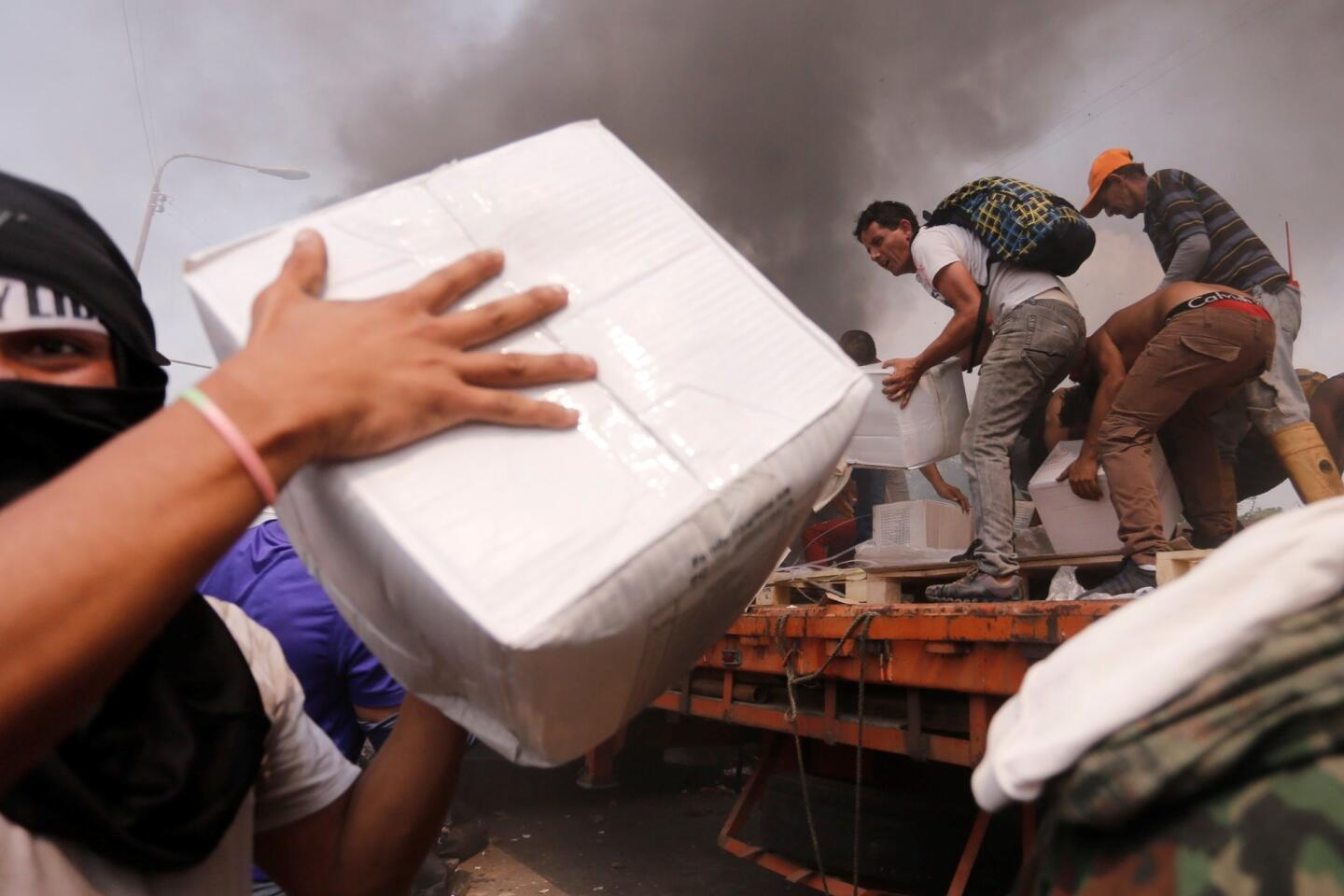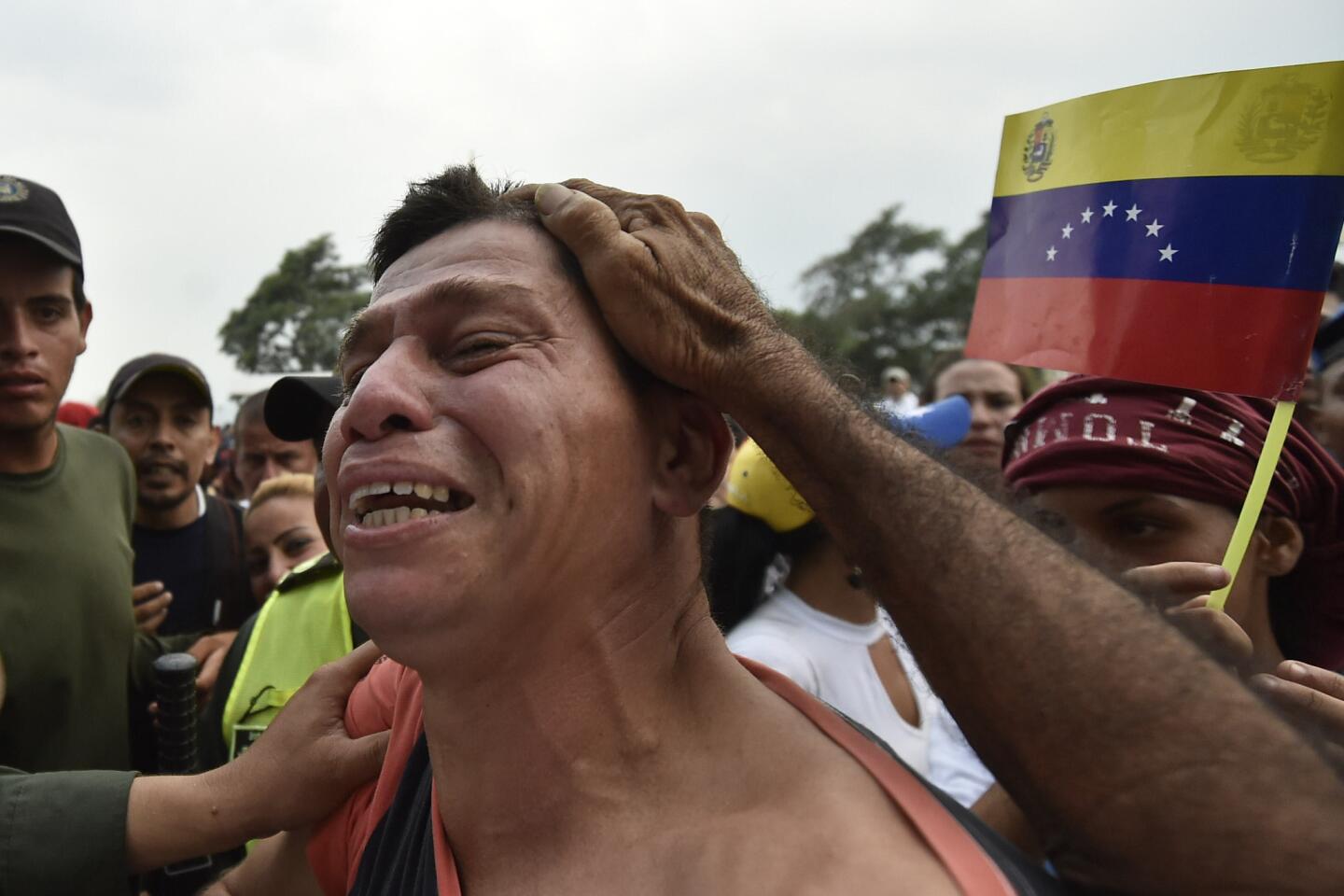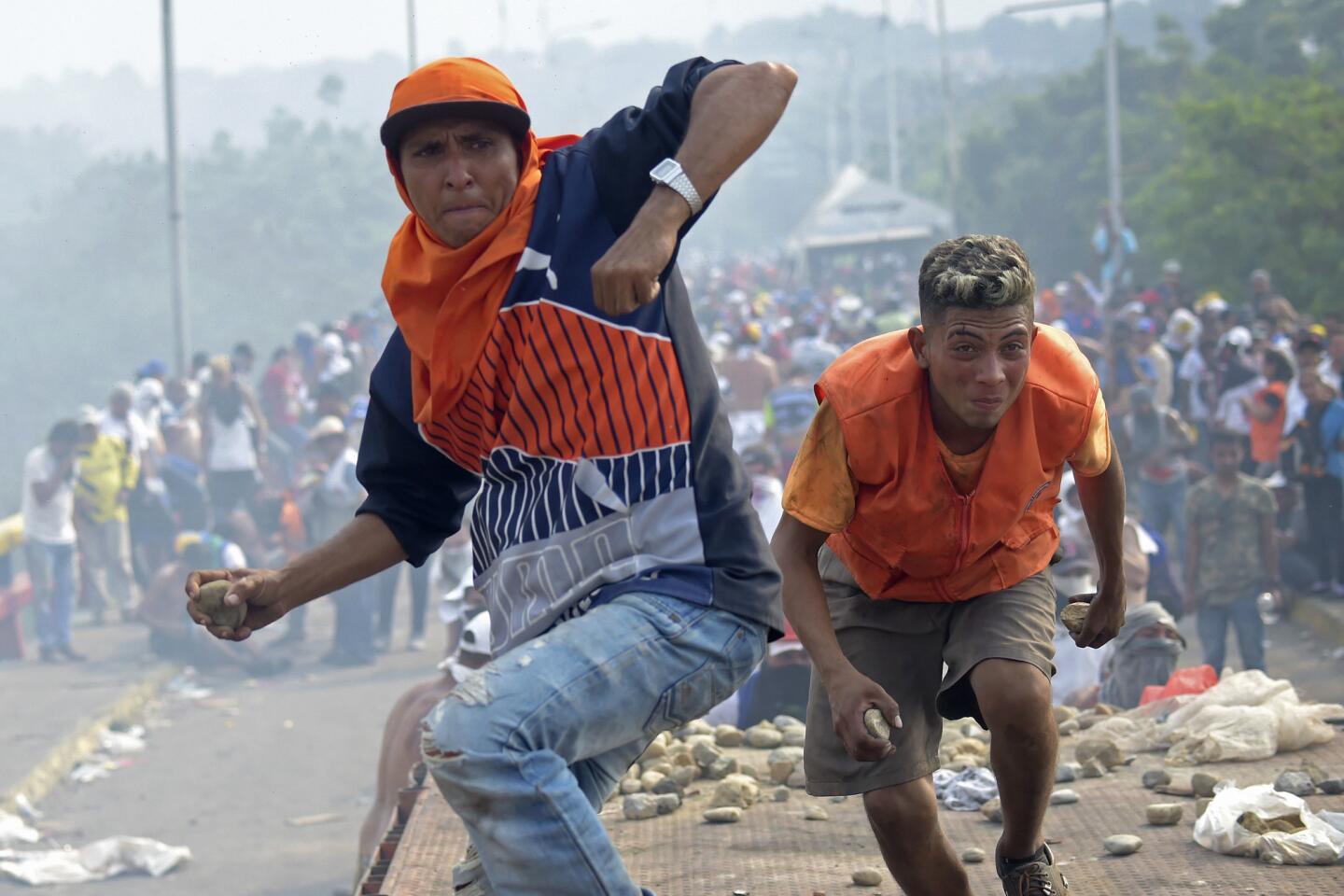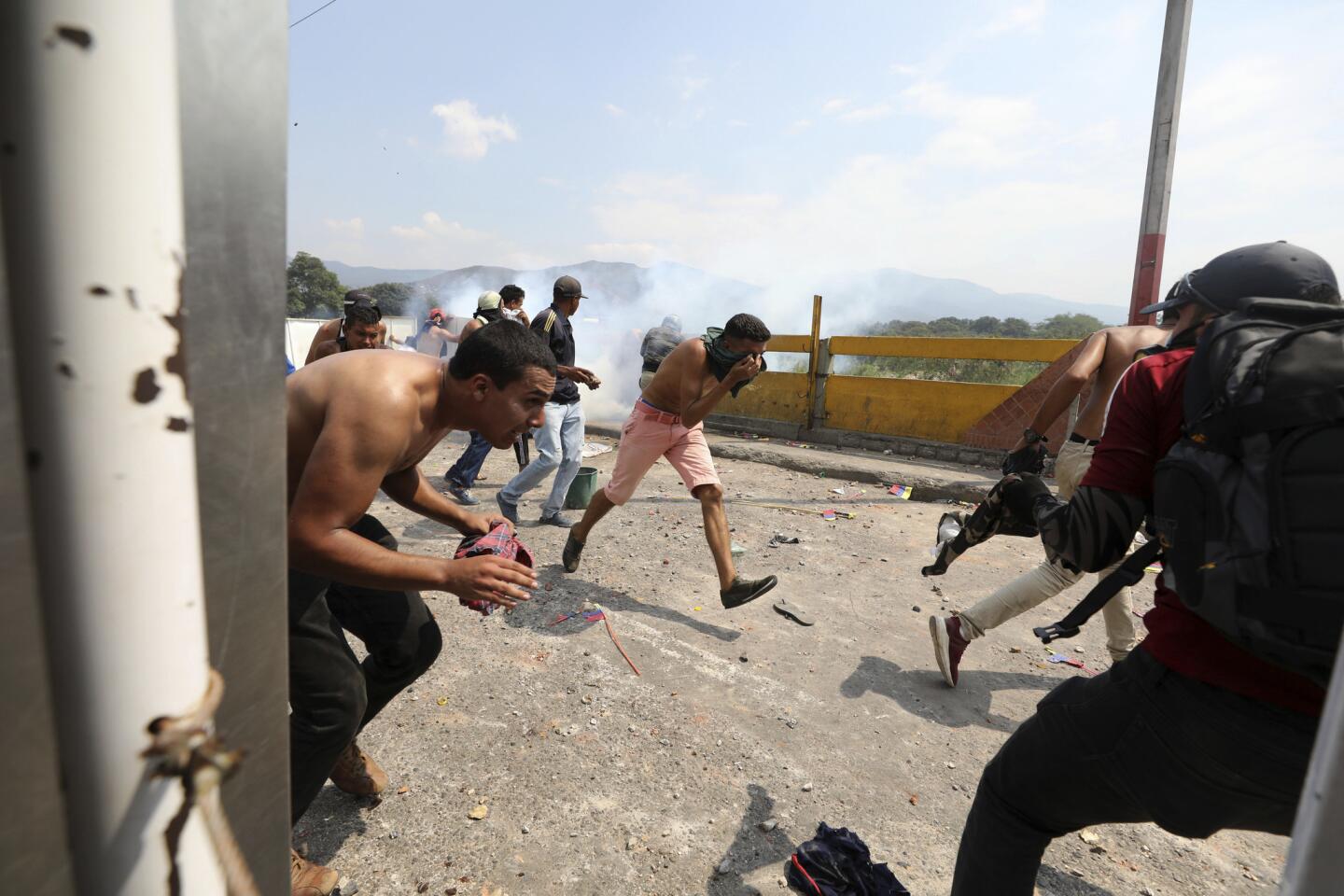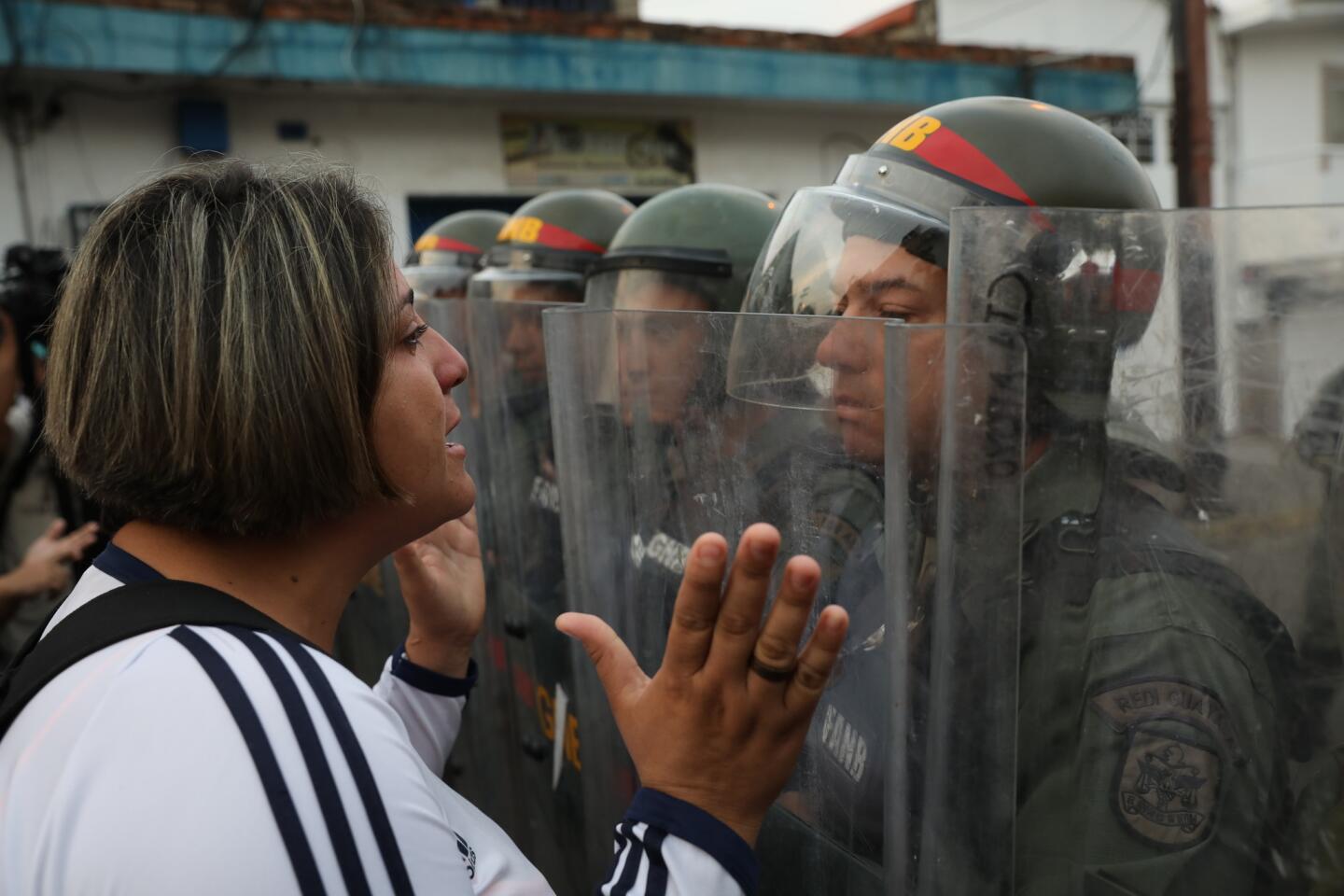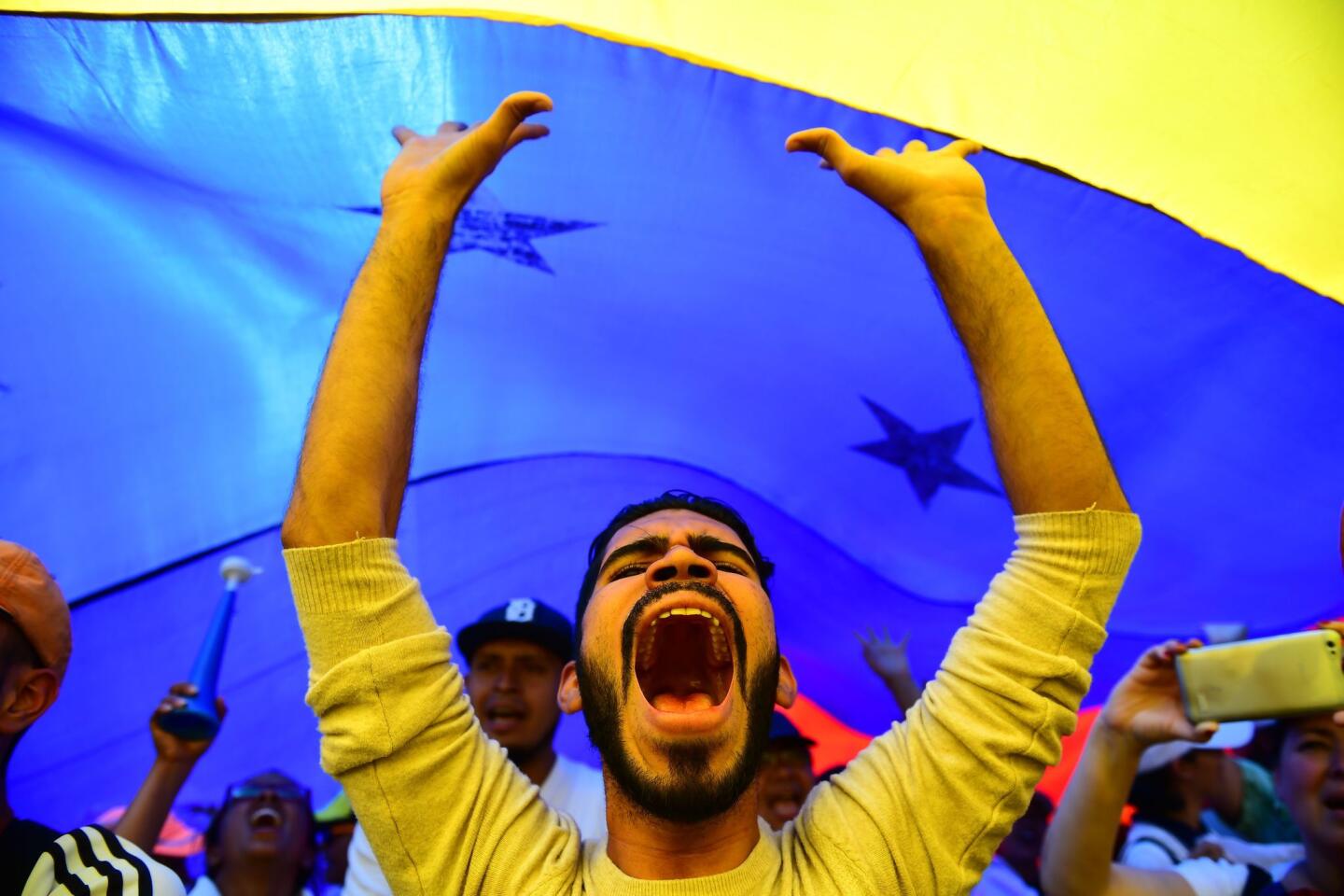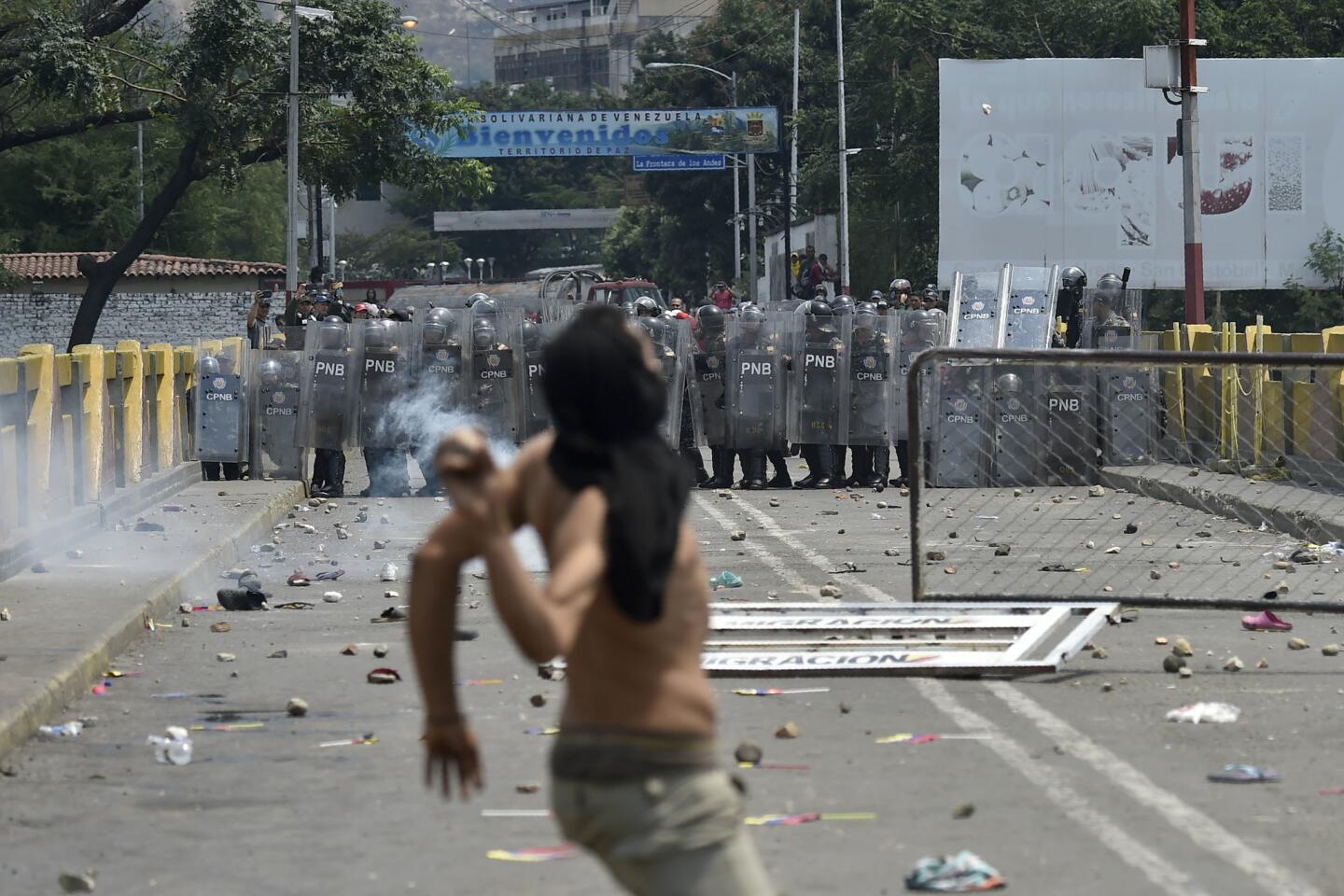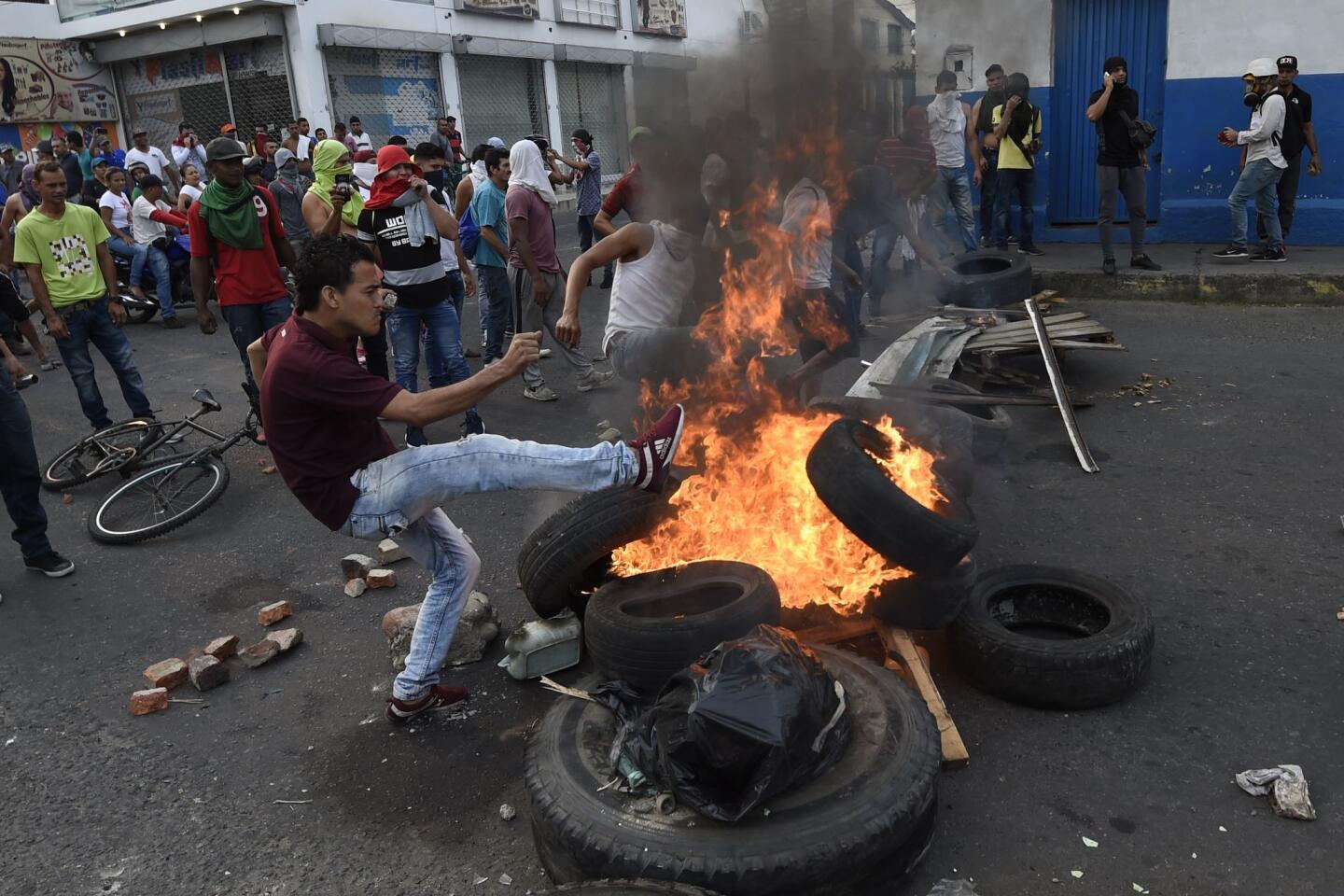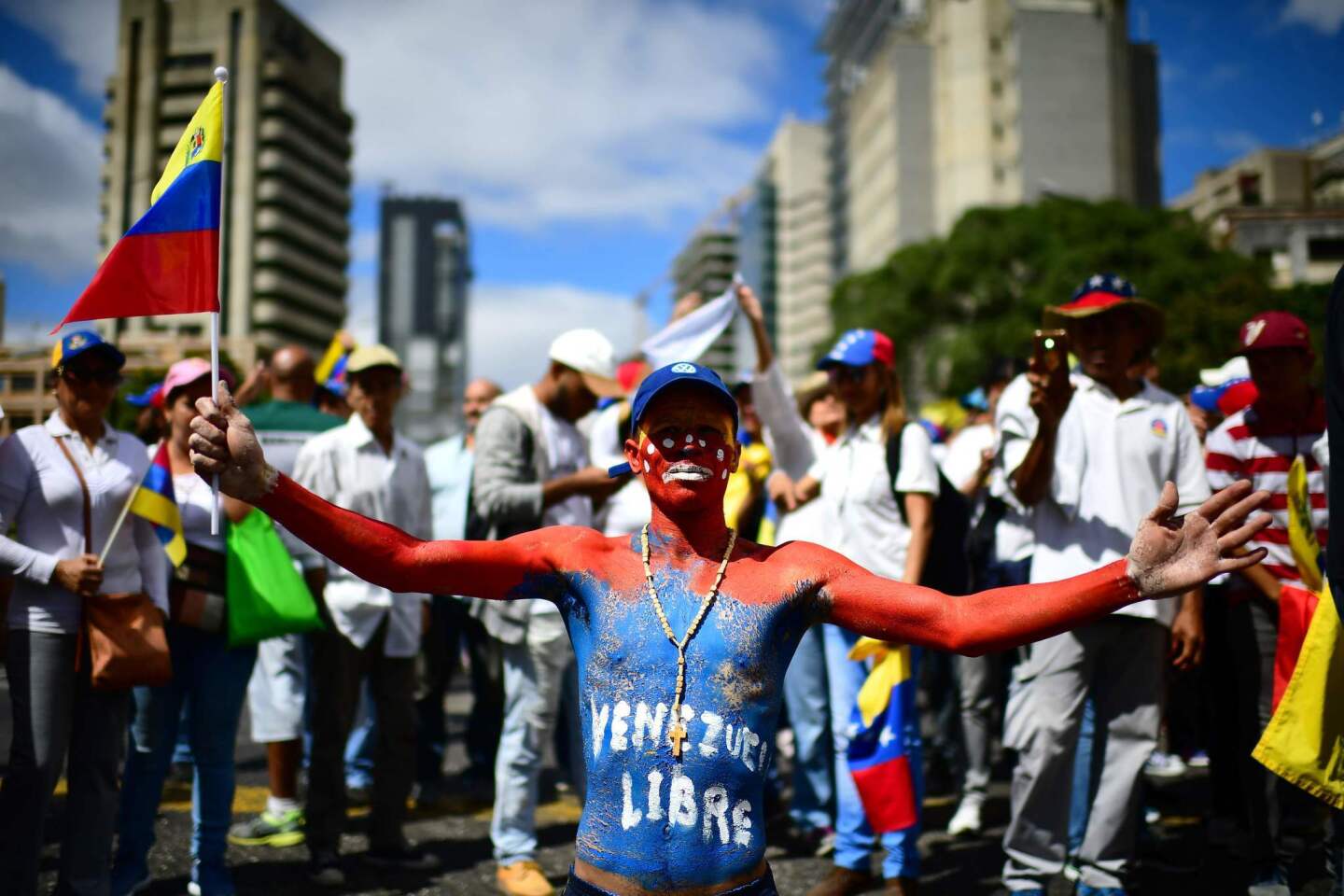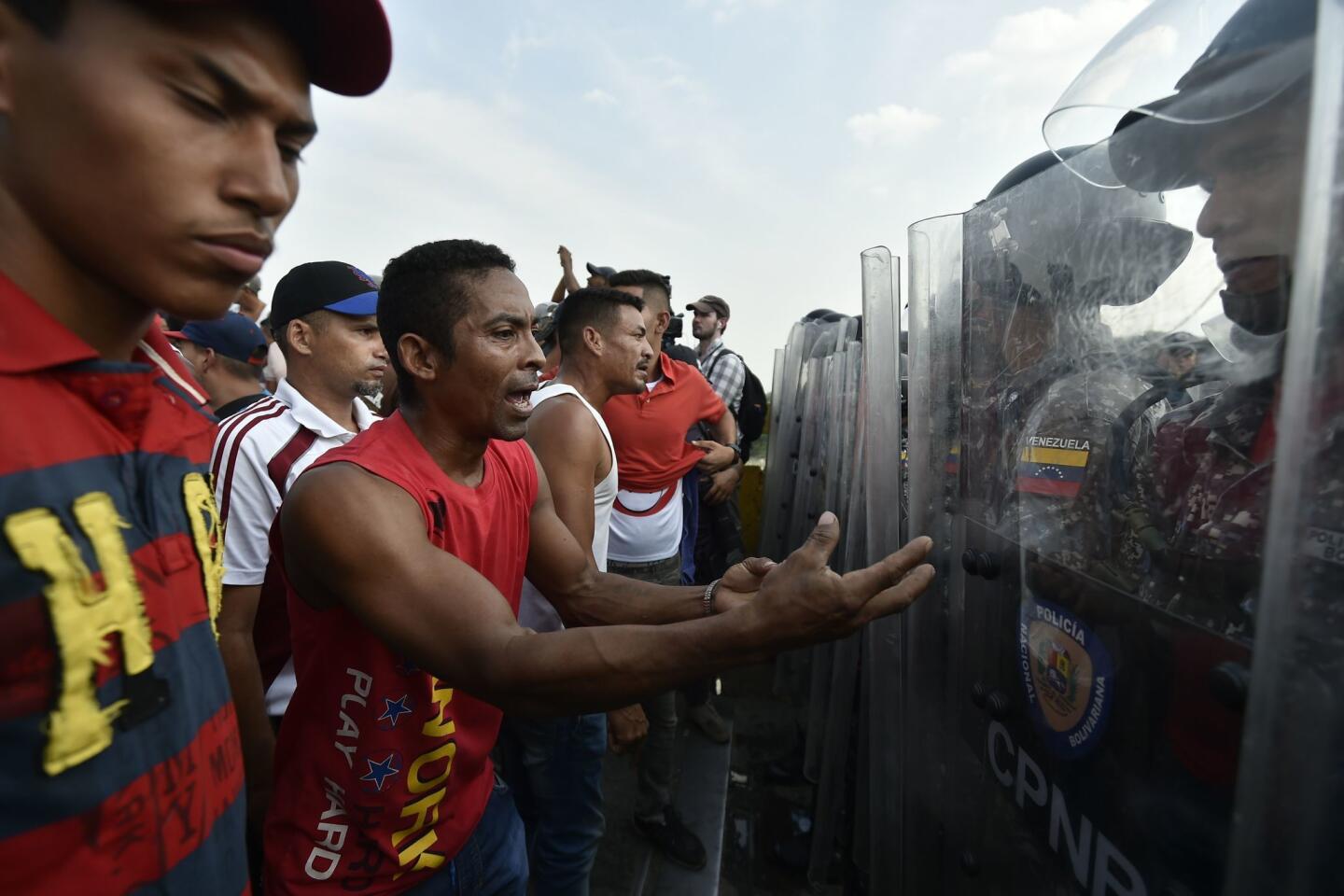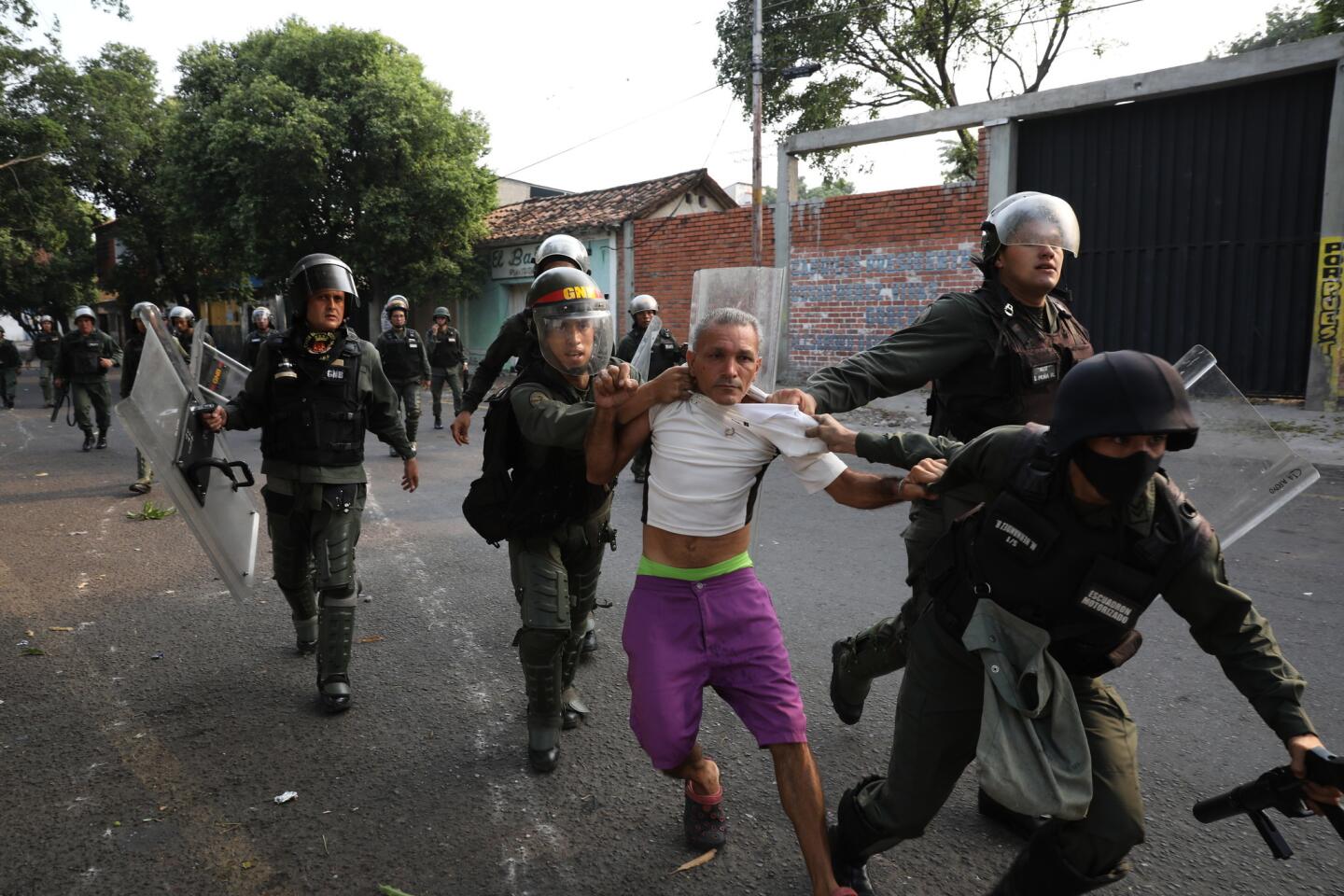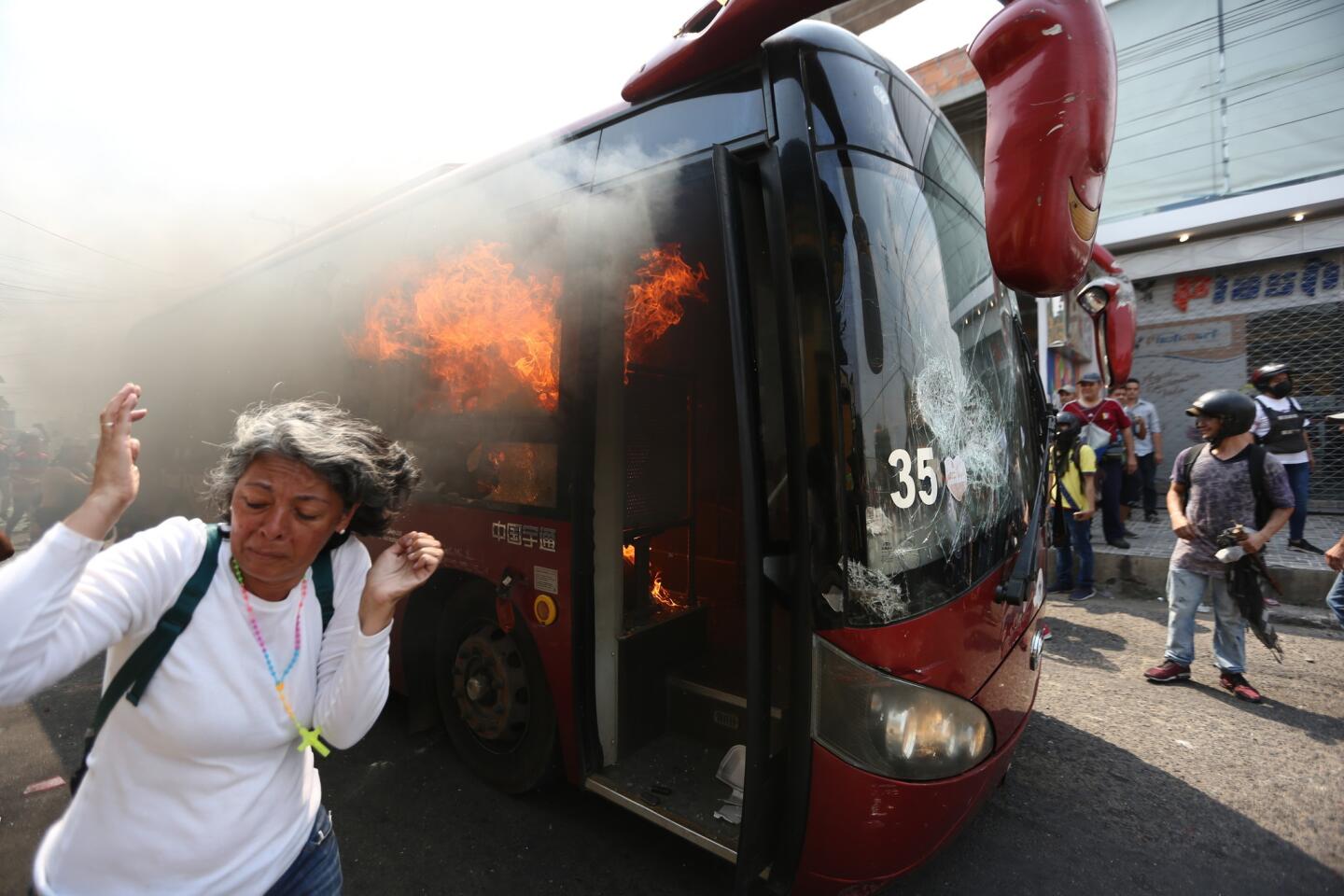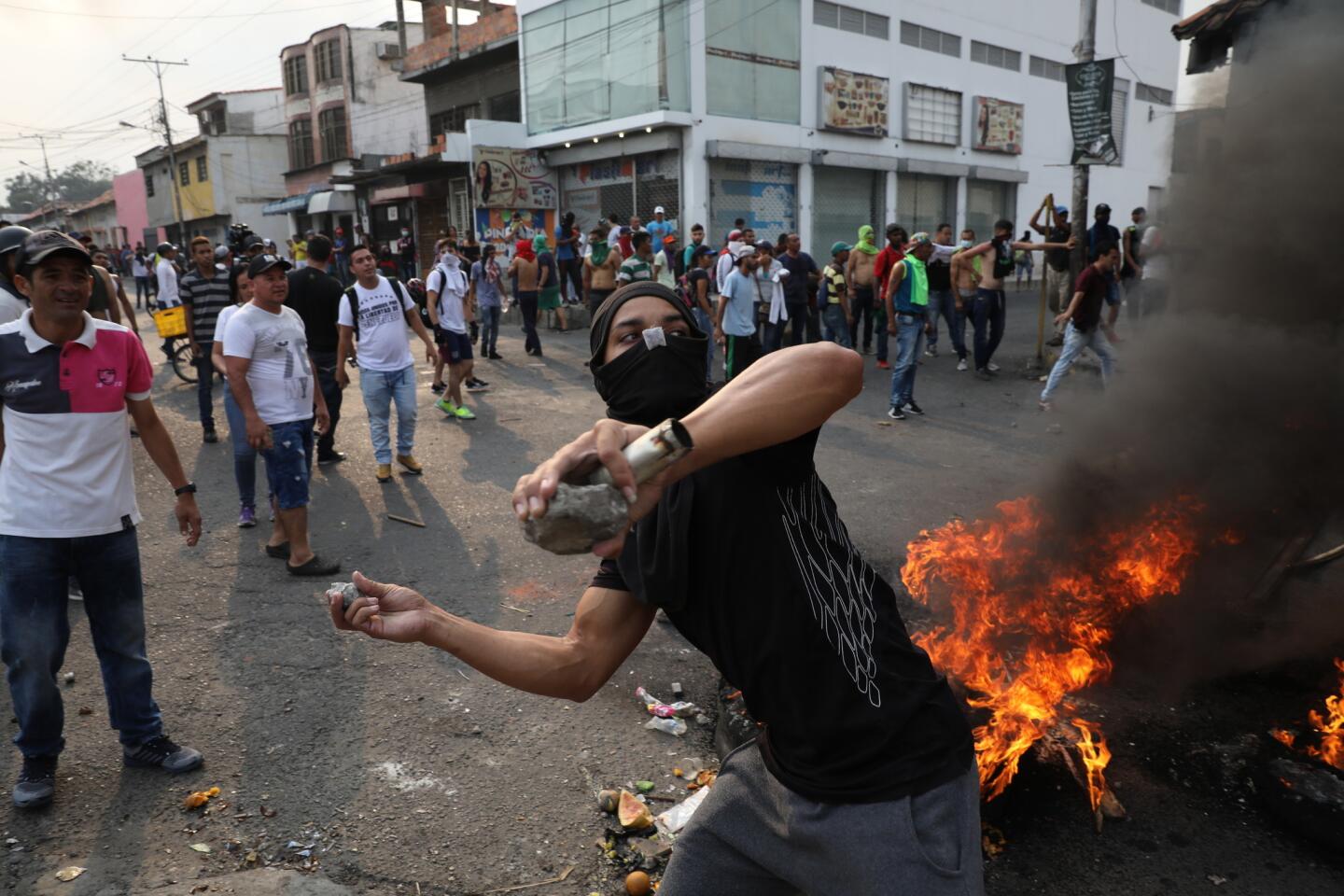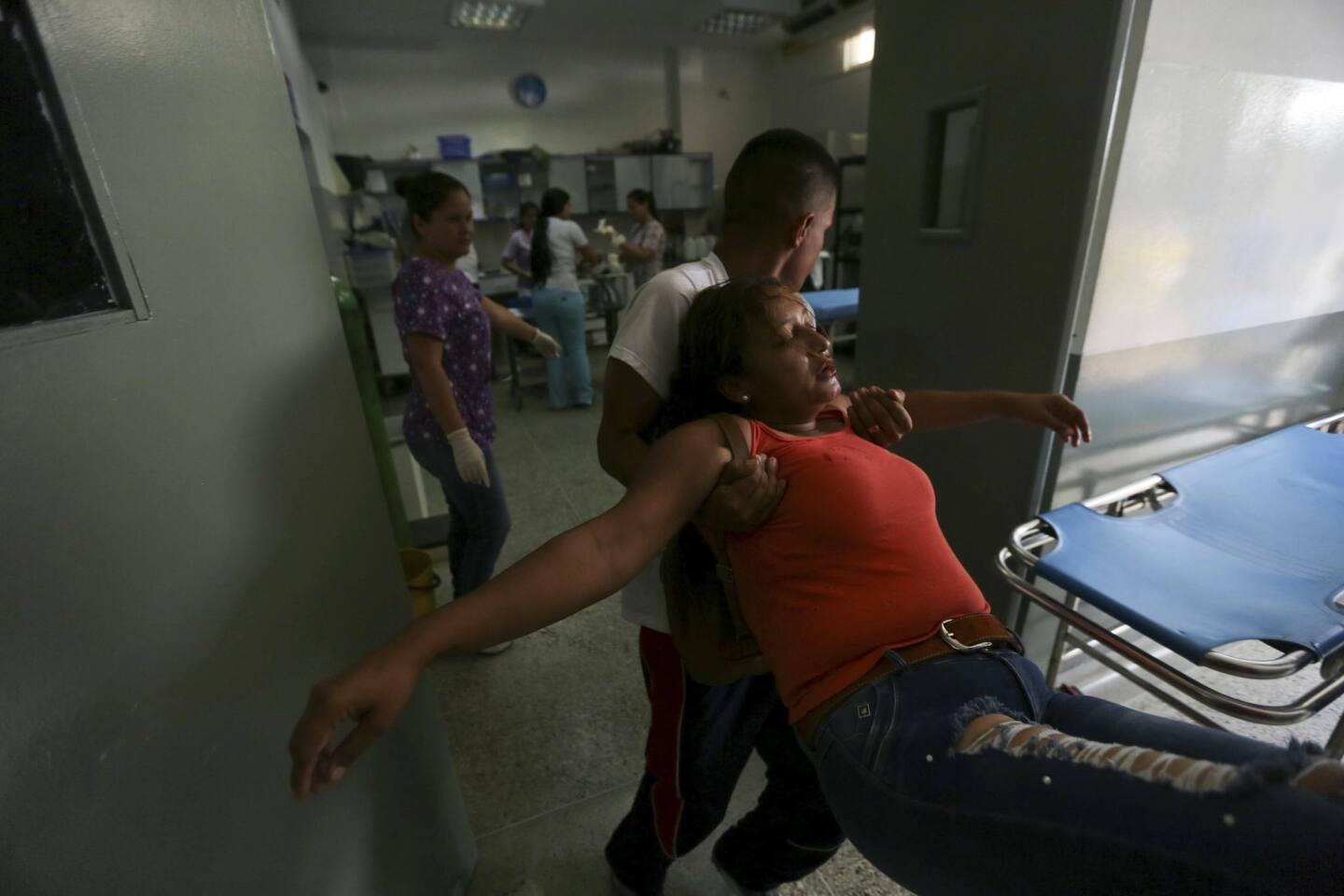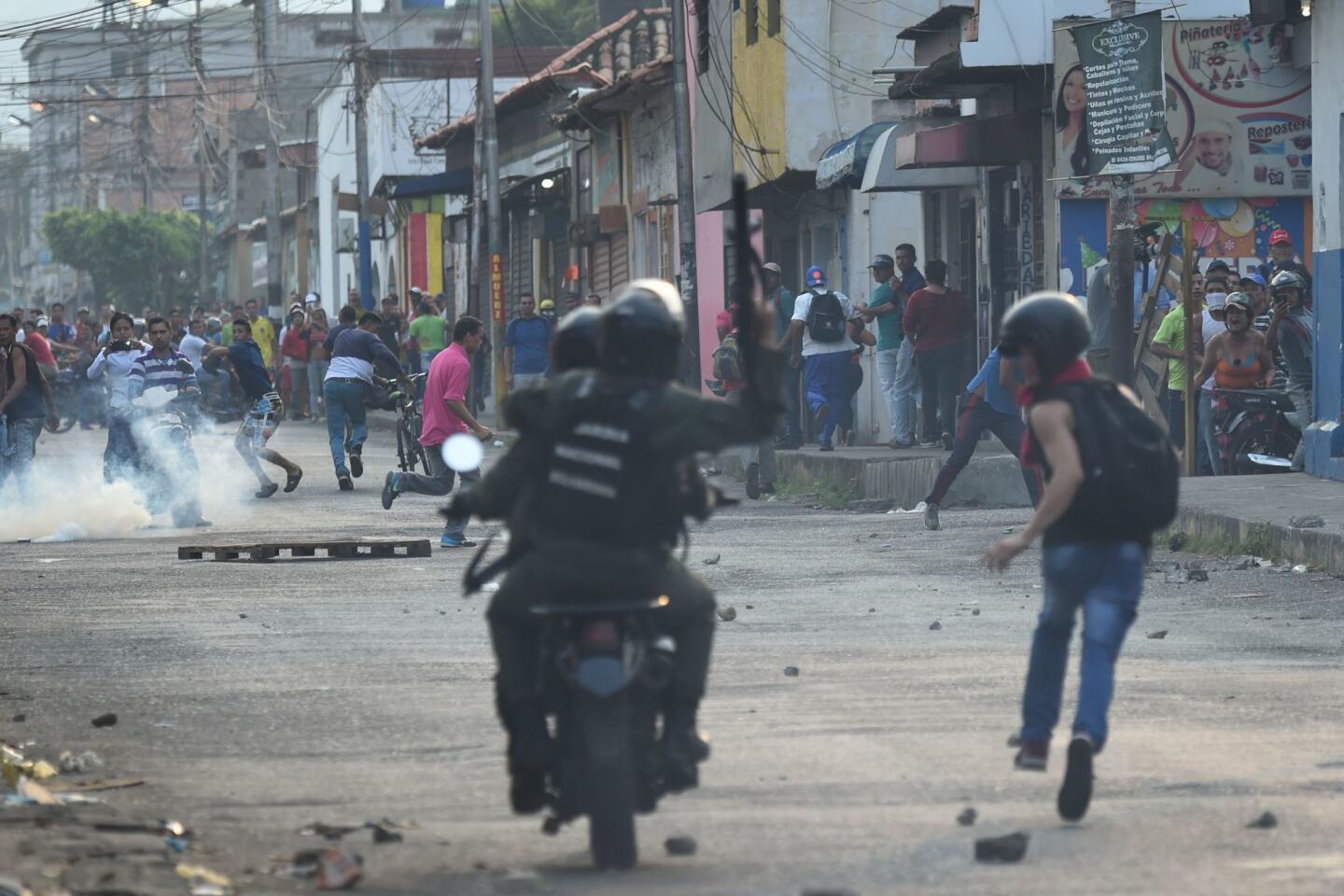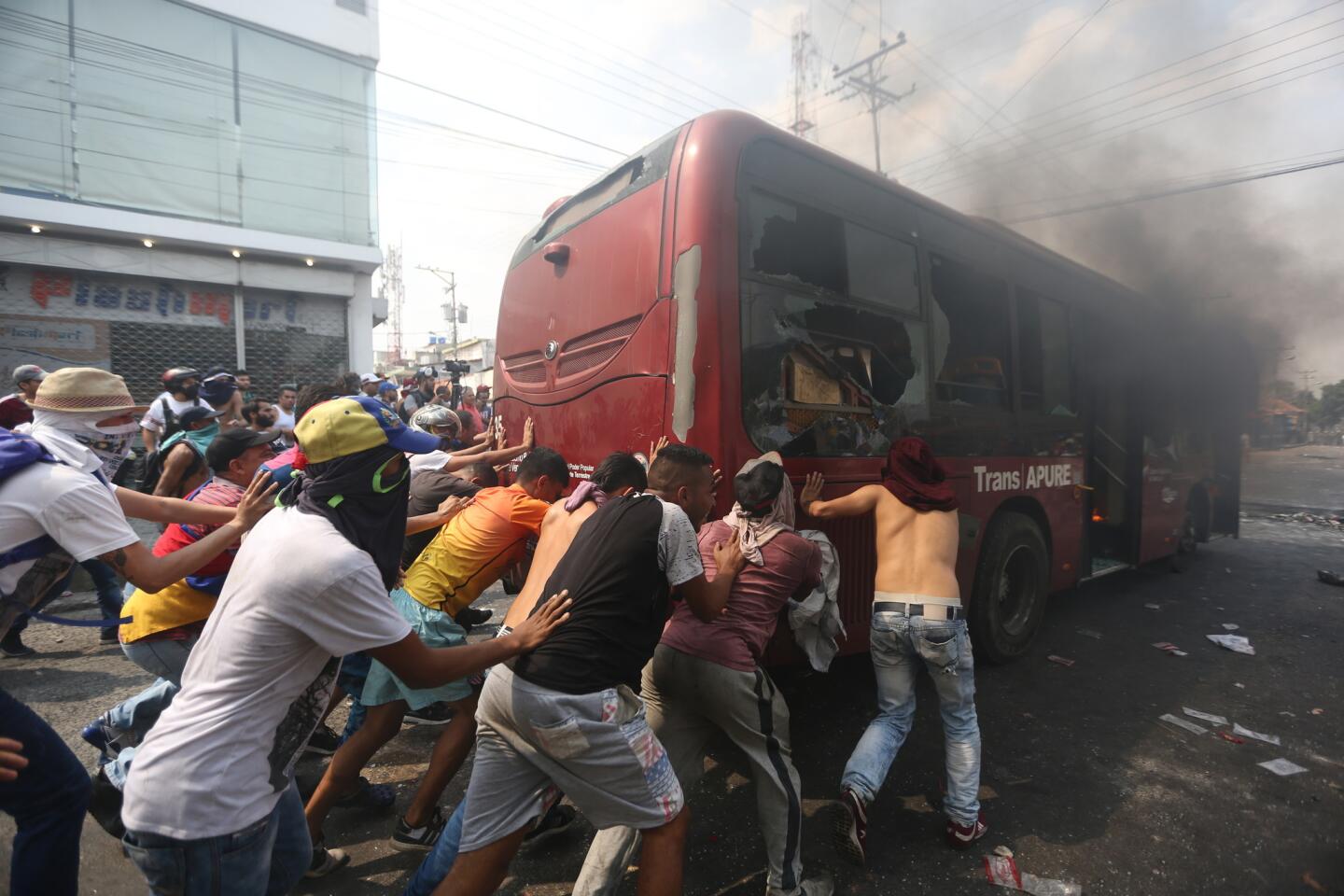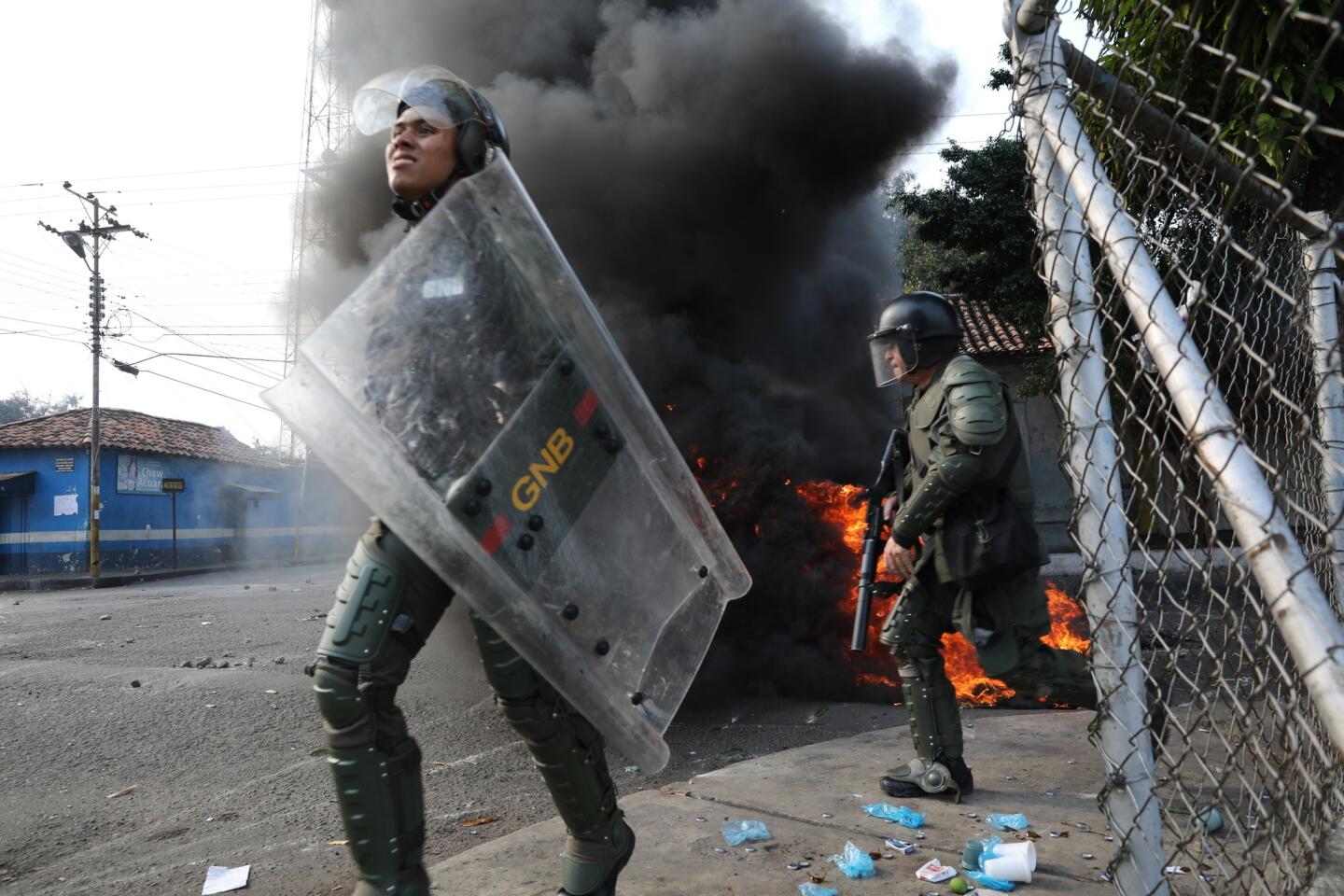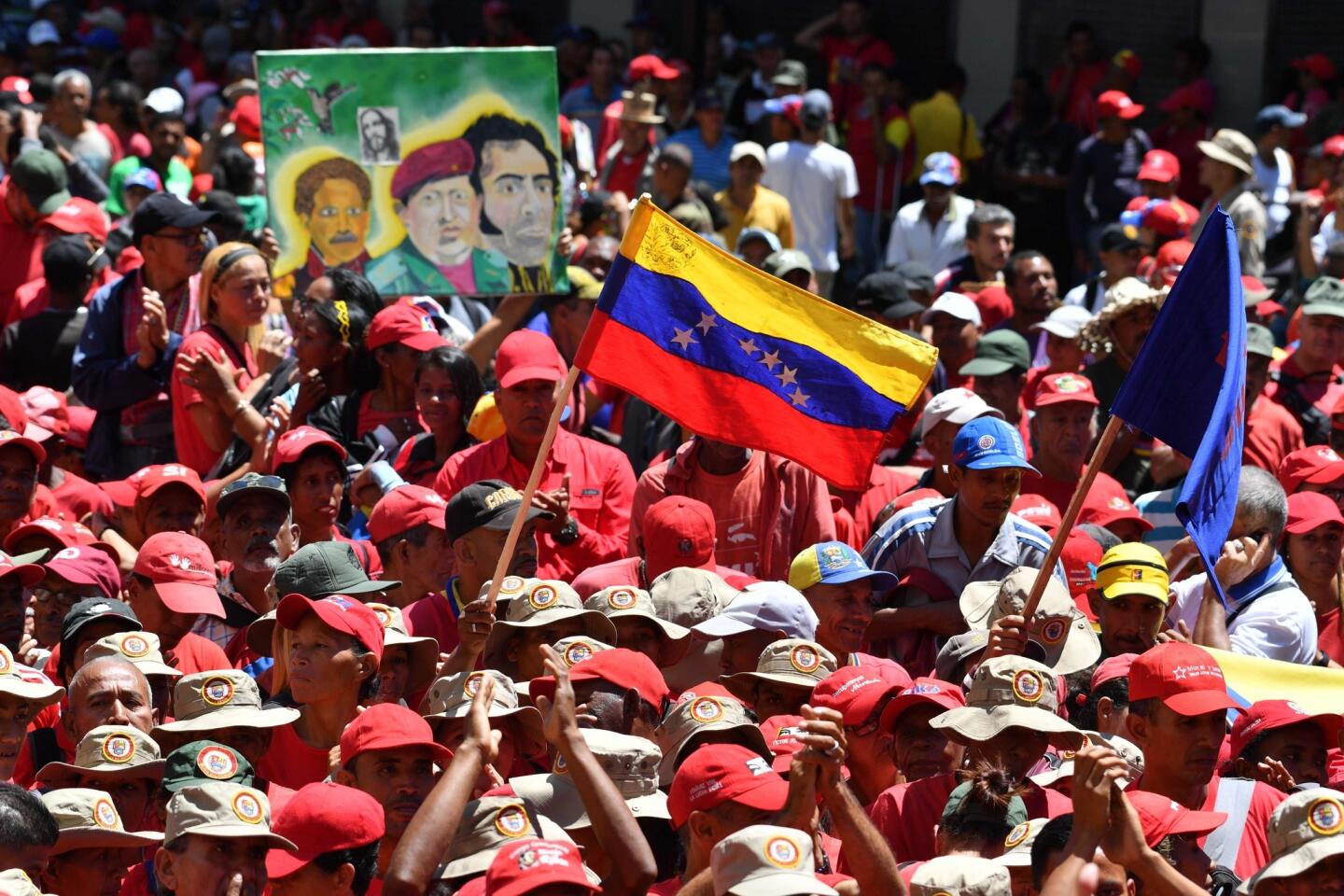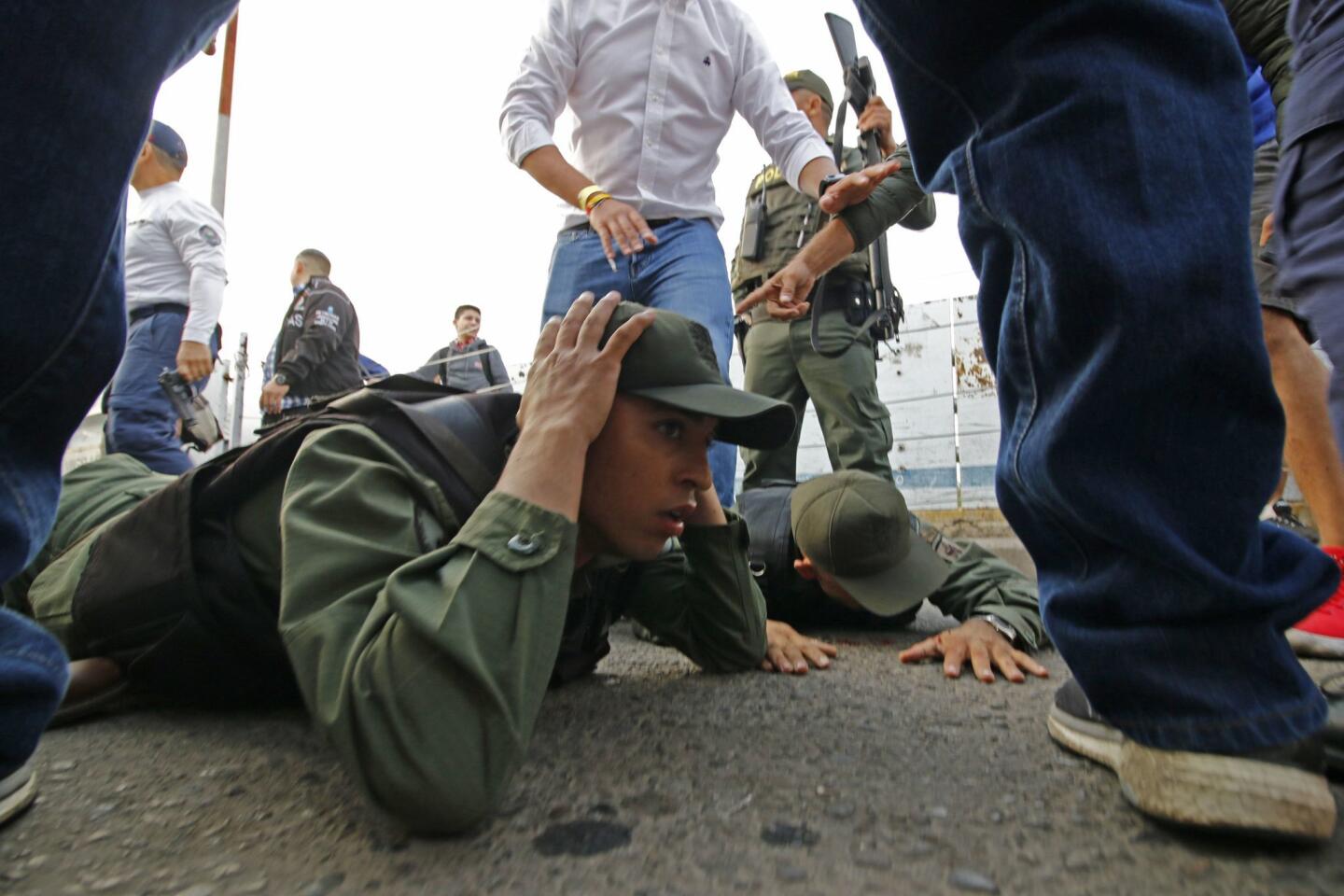Venezuela has seen major protests before. Why is this moment different?
- Share via
Since he took office in 2013 after the death of mentor Hugo Chavez, Venezuelan President Nicolas Maduro has withstood myriad anti-government protests, which have resulted in hundreds of deaths and thousands of arrests in violent clashes with police.
There have been more than 48,900 anti-government protests since 2013, mostly consisting of large groups of neighbors, public workers and university students, according to the Venezuelan Observatory of Social Conflict. The human rights group reports that protests in 2018 surpassed the two previous largest waves during 2014 and 2017.
In 2014, demonstrations against rising crime and shortages of basic goods in the South American nation ended in the deaths of more than 40 people and the jailing of opposition leader Leopoldo Lopez. Venezuelans took to the streets again in 2017 after the country’s Supreme Court approved the transfer of legislative powers from the opposition-led National Assembly to Maduro. The death toll then was more than 150 and thousands more were injured.
Today’s situation is different. As Venezuela’s humanitarian crisis reaches a new extreme, many poor and working-class people who traditionally backed the Chavista socialist agenda have joined protests. Maduro faces strong international pressure to step down as more than 20 countries — including the United States — have recognized opposition leader Juan Guaido as Venezuela’s interim president.
Here are the conditions that distinguish the current protests:
An unprecedented humanitarian crisis
Once a prosperous country, Venezuela suffers from an economic crisis that critics say has resulted from a decline in oil production and government corruption and mismanagement. Inflation during 2018 exceeded 1 million percent, and a recent study by university researchers in Venezuela found that poverty based on income nearly doubled from just under 50% of households in 2014 to 87% in 2017.
With the minimum wage about $6 a month, many can no longer afford ample food. The country also has the world’s highest murder rate at 81.4 deaths per 100,000 people (compared with 5.3 per 100,000 in the U.S.), according to the Venezuelan Observatory of Violence.
This has fueled a massive exodus. There are now roughly 3.4 million Venezuelan refugees and migrants worldwide, with about 1 million people having moved to neighboring Colombia between March 2017 and June 2018. (Venezuela’s population is about 32 million.) The number of Venezuelan asylum seekers worldwide rose from about 4,000 in 2014 to more than 200,000 in 2018.
“In 2014, there were complaints, there were food shortages, but nothing of what you have of late,” said Michael Matera, director of the Americas Program at the Center for Strategic and International Studies in Washington. “You didn’t have outbreaks of diphtheria, measles, polio. What you’ve seen in the last year is unprecedented. It’s Yemen, it’s Syria, it’s Afghanistan, but it’s in the Western Hemisphere.”
Strong international pressure
The humanitarian crisis and Maduro’s reelection last May, widely denounced as fraudulent, have helped mobilize international opposition. David Smilde, a Venezuela expert at Tulane University, said that although opposition leaders had called for Maduro’s resignation in 2014, his party had just received strong backing in municipal elections.
“That claim rang hollow internationally,” Smilde said. “Of course, the U.S. has always supported the opposition, but there was not the widespread international support in Europe and the region supporting the opposition movement.”
Foreign governments’ previous attempts to mediate talks between Maduro and the opposition failed, but now, Smilde said, support for Guaido from many Western Hemisphere and Western Europe nations has “given this movement much more power.”
The Trump administration announced sanctions on Jan. 28 against Venezuela’s state-owned oil company, Petroleos de Venezuela, known as PdVSA.
Lisa Viscidi, of the Inter-American Dialogue think tank, said that while previous sanctions have included actions targeting Venezuelan officials, the recent action could have a much stronger effect. Venezuela produces little domestically besides oil and largely relies on petroleum profits from exports to import basic goods.
“The threat of sanctions has been floating around in the U.S. for many years,” she said. “They were always worried about the fear that the humanitarian crisis would get worse because the economic situation would get worse without a guarantee there would be a positive change in government. That threat still exists — we still don’t know how this is going to end up.”
Maduro still has the support of Venezuela’s military, as well as of Russia and China, both major lenders to the country.
“We’re in a historic battle,” he said during a visit to a military base in early February. “We’re facing the greatest political, diplomatic and economic aggression that Venezuela has confronted in 200 years.”
Opposition parties united under Guaido
The leadership of the National Assembly rotates between opposition parties, but historically divided opposition leaders have united in recent weeks behind Guaido. So far, the opposition has refused to negotiate with Maduro and has demanded his resignation, and called for a transitional government and new elections.
Harold Trinkunas, a nonresident senior fellow at the Brookings Institution in Washington, contrasted the opposition’s united stance with its disagreements in 2014 and 2017 over whether to participate in civil disobedience.
“The Venezuelan opposition spans the whole spectrum, from former members of the communist party to right-wing libertarians,” he said. “They don’t have a lot in common other than they want Maduro out of power.”
Demographics of protesters
The recent protests against Maduro involve a broader segment of the population, including poor neighborhoods that have benefited from subsidized housing and food under Chavez and Maduro.
Manuel Felipe Sierra, a journalist and political analyst in Venezuela, said people perceive Guaido not as a representative of a political party but rather a leader responding to the humanitarian crisis. “The social and economic crisis is so great that what you see on the street is not only from the political opposition,” he said.
Government response to protesters
Experts say Maduro is adopting a more measured approach to protests than in the past, when face-offs frequently resulted in the use of tear gas and water cannons. At the same time, the United Nations reported in January that at least 850 people have recently been detained and more than 40 killed, many by security forces during protests and illegal house raids in poor neighborhoods.
Abraham Lowenthal, president emeritus of the Pacific Council on International Policy, said the key question moving forward is whether members of the armed forces may be willing to defect.
“I think it is a safe assumption that there are a number of senior officers in the Venezuelan armed forces who have been loyal to Maduro and beforehand to Chavez,” he said, “but who recognize things have been going downhill and that the economic situation is desperate, the hyperinflation is desperate, the oil industry is in bad shape and all the international pressures are mounting.”
Smilde said that the diminished aggression of Venezuela’s National Guard could suggest the military is not willing to engage in repression on behalf of Maduro. Human Rights Watch and the Venezuelan Penal Forum, a group that tracks political arrests, reported that in recent years, intelligence and security forces have detained and tortured military personnel accused of conspiring against the government.
Guaido has so far avoided being jailed like Lopez was in 2014. He was detained only briefly in mid-January in an incident the country’s communications minister described as an “irregular procedure” led by a group of officials acting unilaterally.
“The U.S. has threatened that if anything happened to the National Assembly or Guaido there would be the most serious consequences,” Smilde said. “That international pressure has definitely made this opposition moment possible.”
More to Read
Sign up for Essential California
The most important California stories and recommendations in your inbox every morning.
You may occasionally receive promotional content from the Los Angeles Times.
